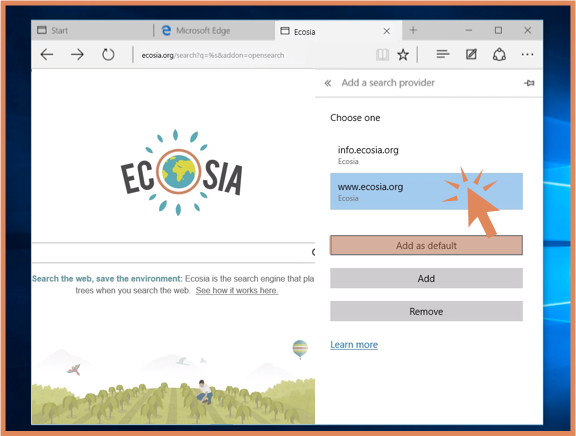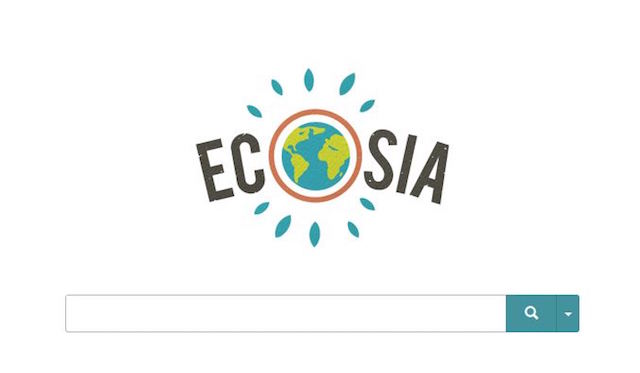As an advocate for social change through individual action, I’m always skeptical when it comes to anything that smells of slacktivism.
But when we can raise money for tree planting by searching something on the Internet, why not do it?
After a devastating drought hit the African country of Burkina Faso, planting trees proved to be the only way to replenish the Earth and to provide work for the locals.
Ecosia does just that: it’s a search engine that plants trees in the region with its ad revenue. Every search generated gives about half a cent toward the planting of a tree, which costs 28 cents—or 50 searches. Just like any other search engine, Ecosia displays ads and gets paid by its partners for every click. Taken into account that not every Ecosia user clicks on every ad, the company earns an average of half a cent (in Euros) per search. The company donates at least 80 percent of its profits—from $50K to $80K a month—to tree planting and keeps its business reports and donation receipts open to the public.
So why isn’t this wonderful search engine used more widely? Firstly, because it’s powered by Bing and secondly, because we see the effect of tree planting as lacking impact. Let me delve into both.
1. Hate for Bing is like hate for Nickelback: it lacks explanation and is more of a bandwagon people jump to avoid being labelled weird. Over the years, “Google it” has become synonymous with “look it up.”
I’ve never heard anyone say “Bing it.” Why not?
Well, Google is an older engine so perhaps we’re used to saying “Google it,” but also, Bing is just not cool—for whatever reason. After Microsoft launched its Bing It On campaign, an independent company Answers Research surveyed users before and after they took a blind test comparing Google and Bing search results. With Bing claiming people preferred it over Google and alternative surveys saying otherwise, the whole argument became awash, marked by subjectivity and first-world desire for a superior search engine. In my opinion, Bing’s (and therefore Ecosia’s) lack of popularity is mostly based on habit and perceived “coolness.” I doubt that everyone who says Bing sucks has actually tried it before. We just use Google by default.
So, why didn’t Ecosia jump on the Google bandwagon?
According to Christian Kroll, founder of Ecosia, Google doesn’t work with charitable work engines because they think people would click on ads just for the sake of planting trees, which would harm Google’s advertisers. I’d believe Google’s good intentions if there was no way to solve for this problem but there is: Ecosia uses algorithms to detect fake clicks and invalidate them.
2. Why the “planting trees doesn’t matter in the large scale of things” claim is wrong.
Ecosia has planted a little over four million trees so far—which is not a terribly big number considering that 15 billion trees are cut down annually.
The effect of this social and eco-effort is only marginal because we choose to make it marginal. Here is why.
According to Statistic Brain, over two trillion searches are made using Google annually (since this statistic is from 2014, the number has probably grown).
If we took one percent of annual Google searches and made them using Ecosia, we’d raise enough money to plant almost 420 million trees every year. If that number was a little over two percent, Ecosia alone would be able to plant one billion trees out of the 15 billion cut down annually.
When one company restores one fifteenth of what the whole world destroys, that’s not so marginal, is it?
The bottom line is that the more people use Ecosia, the more advertisers it will attract and therefore the more money it will raise to plant trees. Perhaps it will also send a message to other companies to start a similar effort or campaign.
And hopefully, it will redefine what “cool” means because—let’s be honest—restoring another country’s economy by planting trees is pretty cool.
Editor’s note—think this is as neat as I do? Here’s how you can easily switch your search engine to default as Ecosia:

~
Author: Anna Sorokina
Editor: Sarah Kolkka
Image: from Ecosia


 Share on bsky
Share on bsky





Read 0 comments and reply